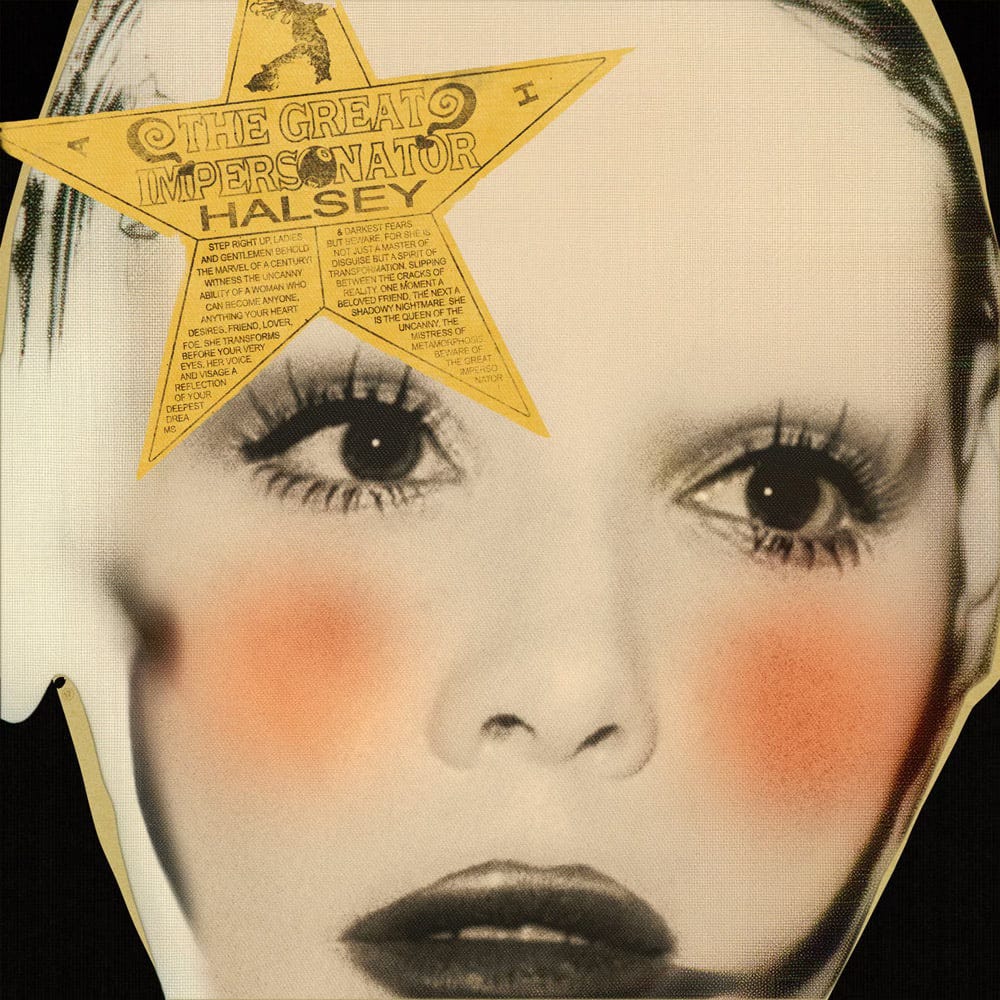'The Great Impersonator': Halsey goes through love, fear, trauma and more as she grapples with her mortality
Halsey had worked on this album while privately battling chronic illnesses. They did not know if they would live long enough to create another one.
“The Great Impersonator” is what you get when an already brilliant artist grapples with her own mortality.
During the time Halsey had been working on this album, she had been privately battling a form of lupus and a rare T-cell lymphoproliferative disorder. They did not know if they would live long enough to create another one.
Halsey released the album’s first single, “The End” in June with the words: “long story short, i’m Lucky to be alive.” A fitting way to introduce the world to the album that they had created believing would be her last.
In the Joni Mitchell-inspired single, Halsey describes the feeling of falling in love as a dying person while wondering if she could be loved back during what feels like “the end of the world.”
That sense of finality is evident not just in the album’s quality but also in its vulnerable honesty. Perhaps the quality reflects that vulnerability: “The Great Impersonator” is Halsey’s most honest insight into her innermost self.
Halsey shows us her complicated, often contradictory thoughts and feelings as she navigates the possibility that she may not be around much longer — a possible reality only made scarier by the fact that she was a new parent to her son Ender who was born in 2021 (and even has a couple writer credits on this album!)
Sprinkled along the album as interludes are three entirely self-written “Letter(s) to God” across different stages of Halsey’s life. These alone cover the essence of the entire story that she is telling.
“Please god, I wanna be sick,” she laments in the first one believing that her parents and those around her would give her the love and attention she craves as a young child. When she grows up it all changes: “Please god, I don’t wanna be sick,” she now cries. Both times the one constant remains in the next verse: “Please god, I wanna be loved.”
This culminates with the third one where a defeated Halsey goes through existentialism as she faces the possibility of her son growing up without his mother. We hear Halsey and Ender talking to each other as this track begins and soon the song starts, “Please god or whoever you are.”
“Please god, oh, you’ve gotta be sick,” she declares with that lost faith, pleading one last time: “Please god, I’m finally loved.”
Each song on this 18-track masterpiece is an homage to one of Halsey’s influences including Dolly Parton (“Hometown”), Stevie Nicks (“Panic Attack”), Linda Ronstadt (“I Believe In Magic”) as well as the biggest musical act from her hometown of New Jersey — the boss —Bruce Springsteen (“Letter to God (1983)”).
Some are overt like “Lucky” in which she interpolates Britney Spears’s song of the same name and takes you back to the bubblegum pop stylings of her early career. Others less so.
She channels the post-punk pop-rock spirit of The Cranberries in “Ego,” her tribute to Dolores O’Riordan while in “I Never Loved You” she brings out the progressive pop sound of Kate Bush.
For “Hurt Feelings” Halsey brought back herself from a decade ago. She says her influence for this one was herself from “Badlands” — her first album when she was still turning from Ashley (her real name) to Halsey!
There is 30 years worth of anger, fear, trauma, love, heartache and so much more in this album. “Does a story die with its narrator?” she wonders on the Bjork-inspired title track. Well, in this case, the narrator isn’t dying anytime soon and the story will survive for even longer.




